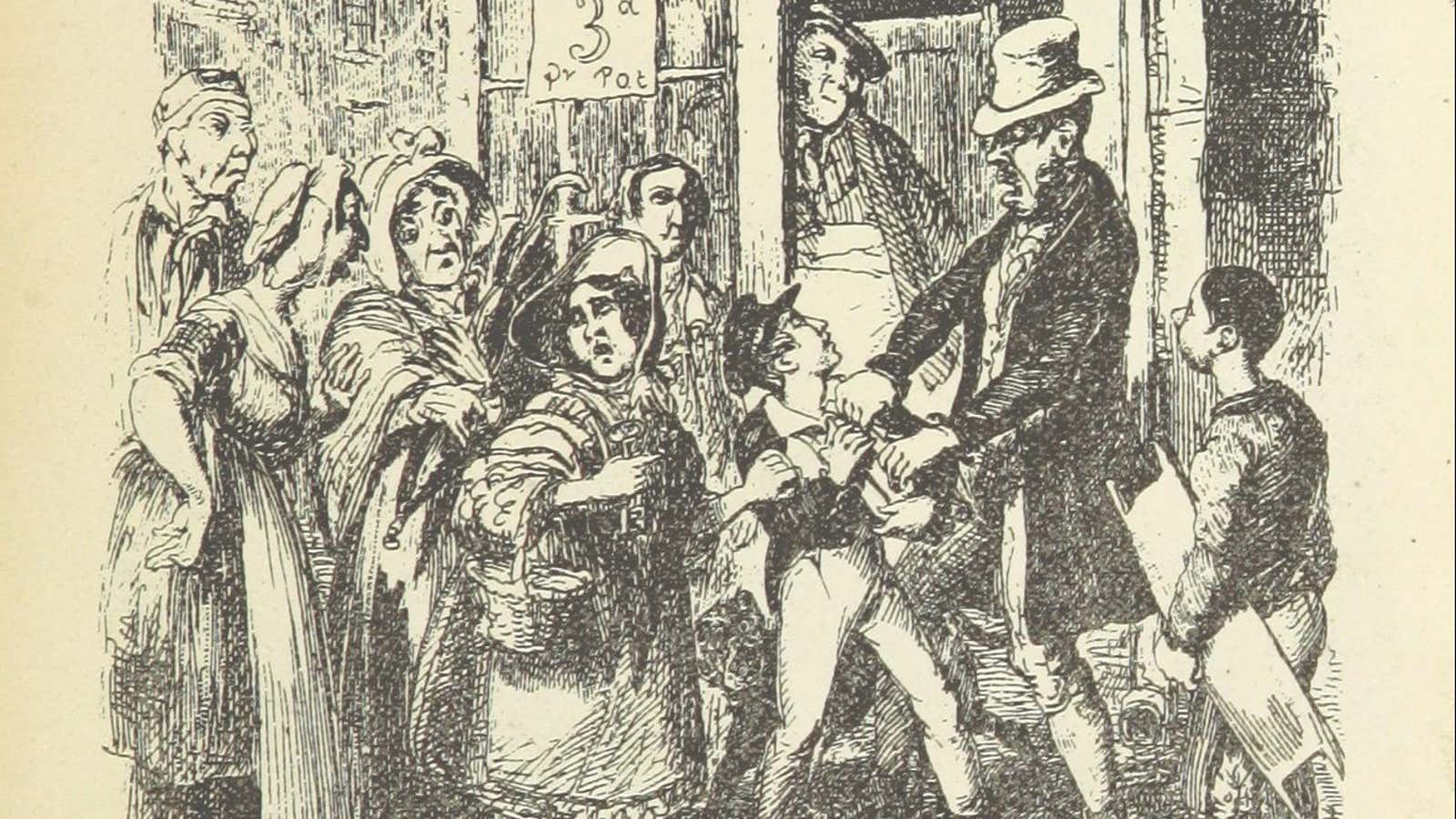US president Donald Trump has popularized the phrase “fake news.” But not too long ago these words in combination would have meant little to everyday English speakers.
In this week’s column in an Oxford University Press blog series on etymology, linguist Anatoly Liberman writes about the origins of the word “fake.” The word, it turns out, has a very murky past. The best guess for how “fake” became mainstream, argues Liberman, is that it was slang used by thieves in the London underworld. But ”how it got there, nobody in the world knows, and probably nobody will ever know,” he tells Quartz.
Liberman is a professor in the German, Scandinavian, and Dutch department at the University of Minnesota and the author of Word Origins and How We Know Them. He writes that early records of “fake” as an English adjective appeared around the middle of the 18th century. The word likely comes from cant, or thief jargon.
The OED cites “fake” as a verb starting in 1819, which basically meant “to do” in cant, but also to kill, wound, or plunder. An entry from a slang dictionary that year reads:
To fake any person or place, to rob them; to fake a person may also imply to shoot, wound, or cut; to fake a man out and out, is to kill him; a man who inflicts wounds upon, or otherwise disfigures, himself, for any sinister purpose, is said to have faked himself….
Liberman traces the word next to Charles Dickens, who used ”cly-faker,” where “cly” means pocket, in Oliver Twist. This is how he believes knowledge of “fake,” as a word that means to steal, spread. Eventually it became a commonplace English word.
But how it got to London criminals in the first place is even murkier. Liberman says one possibility is that “fake” is related to Germanic words that start with an f- sound and end in -k, like, “fuck,” which often means “to cheat.” “All over the Germanic-speaking world, we find fik– ~ fak– ~ fuk– verbs meaning ‘to move back and forth’ and ‘cheat,’” he writes. “Fake” could come from “feague,” an obsolete verb, which could have come from this same area as fik/fak/fuk words. Writes Liberman:
They probably meant “go ahead, move; act, do,” with all kinds of specialization, from “darn (a stocking),” to “cheat,” to “copulate.” Once they were appropriated by thieves, “go ahead, do,” naturally, became “deceive; steal, etc.”
This level of etymological uncertainty is not at all unique to the word “fake.” If you go back far enough even on a word experts are fairly certain about, you’ll eventually hit a wall of doubt. Liberman estimates that 10% of the words in the OED are listed with an uncertain origin, meaning that a word has extremely muddy origins, like with “fake,” or that there are many possibilities, with no clear facts.
It’s a fittingly uncertain story for the now important and often abused phrase “fake news.” Some people use it to mean a report based on lies or shaky foundations, while others, including the president, use it to refer to a story that’s damaging to a specific person or group. Accusations of the latter, especially by the president, create the impression that stories deemed unflattering aren’t real.
